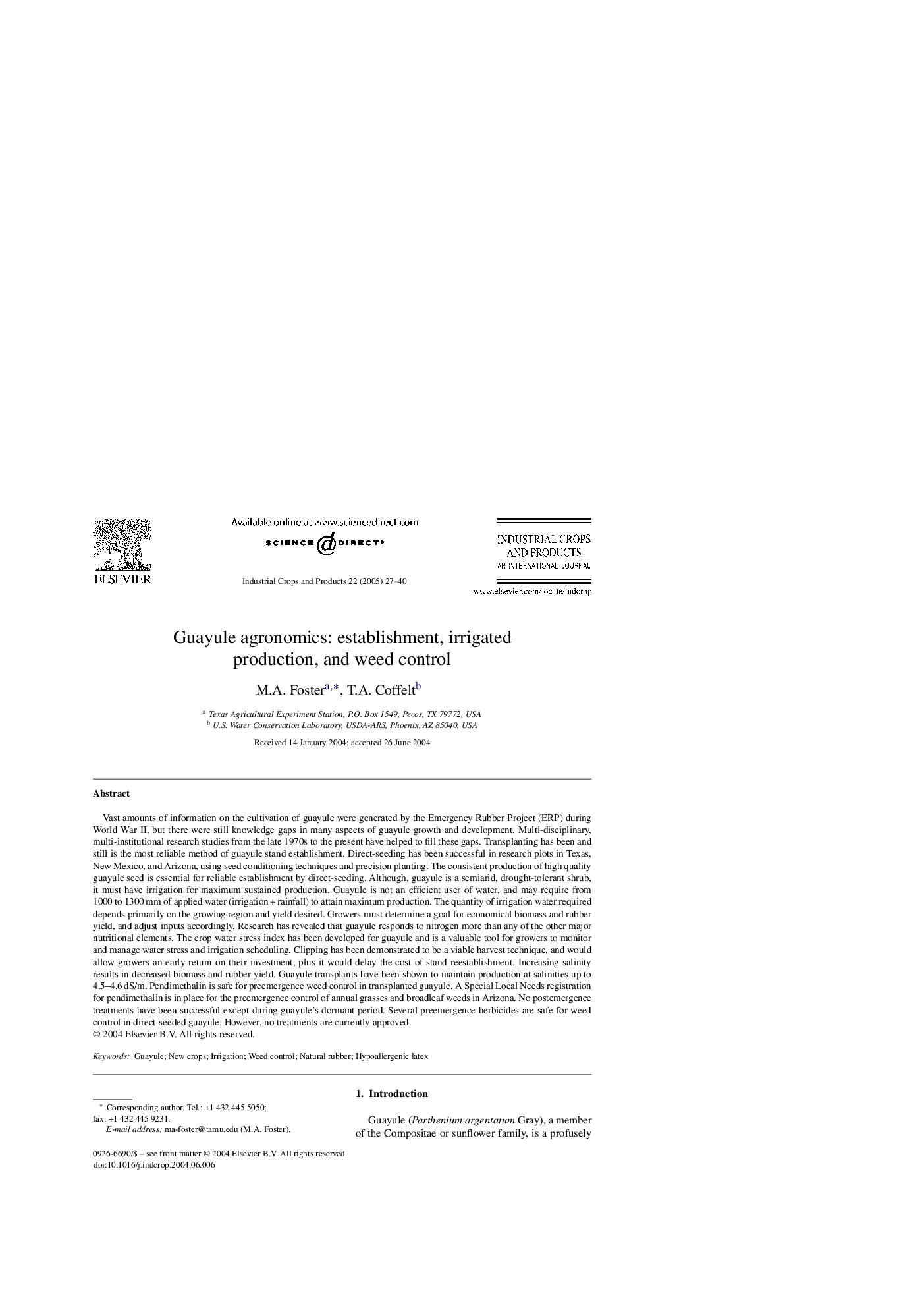| کد مقاله | کد نشریه | سال انتشار | مقاله انگلیسی | نسخه تمام متن |
|---|---|---|---|---|
| 9474155 | 1322246 | 2005 | 14 صفحه PDF | دانلود رایگان |
عنوان انگلیسی مقاله ISI
Guayule agronomics: establishment, irrigated production, and weed control
دانلود مقاله + سفارش ترجمه
دانلود مقاله ISI انگلیسی
رایگان برای ایرانیان
کلمات کلیدی
موضوعات مرتبط
علوم زیستی و بیوفناوری
علوم کشاورزی و بیولوژیک
علوم زراعت و اصلاح نباتات
پیش نمایش صفحه اول مقاله

چکیده انگلیسی
Vast amounts of information on the cultivation of guayule were generated by the Emergency Rubber Project (ERP) during World War II, but there were still knowledge gaps in many aspects of guayule growth and development. Multi-disciplinary, multi-institutional research studies from the late 1970s to the present have helped to fill these gaps. Transplanting has been and still is the most reliable method of guayule stand establishment. Direct-seeding has been successful in research plots in Texas, New Mexico, and Arizona, using seed conditioning techniques and precision planting. The consistent production of high quality guayule seed is essential for reliable establishment by direct-seeding. Although, guayule is a semiarid, drought-tolerant shrub, it must have irrigation for maximum sustained production. Guayule is not an efficient user of water, and may require from 1000 to 1300 mm of applied water (irrigation + rainfall) to attain maximum production. The quantity of irrigation water required depends primarily on the growing region and yield desired. Growers must determine a goal for economical biomass and rubber yield, and adjust inputs accordingly. Research has revealed that guayule responds to nitrogen more than any of the other major nutritional elements. The crop water stress index has been developed for guayule and is a valuable tool for growers to monitor and manage water stress and irrigation scheduling. Clipping has been demonstrated to be a viable harvest technique, and would allow growers an early return on their investment, plus it would delay the cost of stand reestablishment. Increasing salinity results in decreased biomass and rubber yield. Guayule transplants have been shown to maintain production at salinities up to 4.5-4.6 dS/m. Pendimethalin is safe for preemergence weed control in transplanted guayule. A Special Local Needs registration for pendimethalin is in place for the preemergence control of annual grasses and broadleaf weeds in Arizona. No postemergence treatments have been successful except during guayule's dormant period. Several preemergence herbicides are safe for weed control in direct-seeded guayule. However, no treatments are currently approved.
ناشر
Database: Elsevier - ScienceDirect (ساینس دایرکت)
Journal: Industrial Crops and Products - Volume 22, Issue 1, July 2005, Pages 27-40
Journal: Industrial Crops and Products - Volume 22, Issue 1, July 2005, Pages 27-40
نویسندگان
M.A. Foster, T.A. Coffelt,